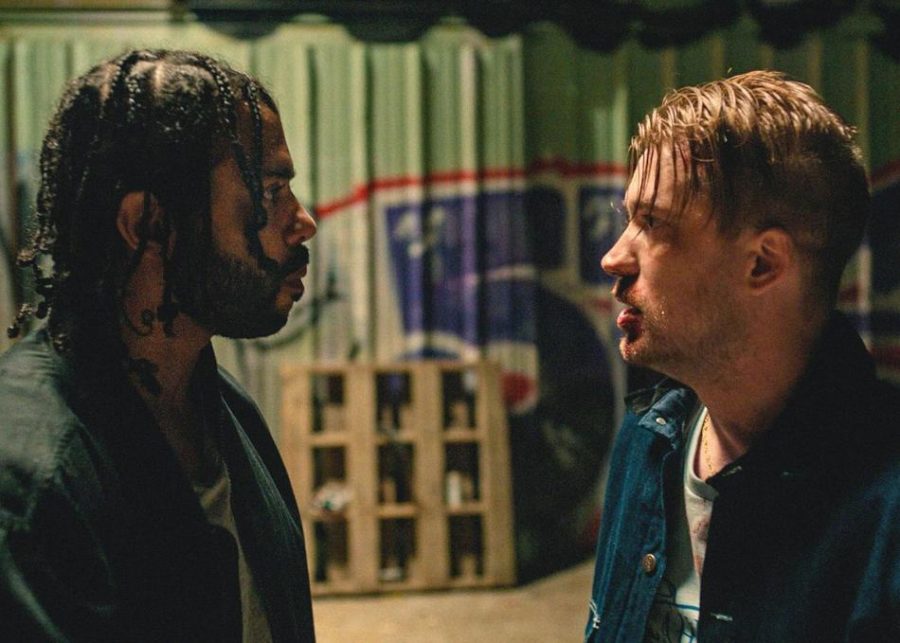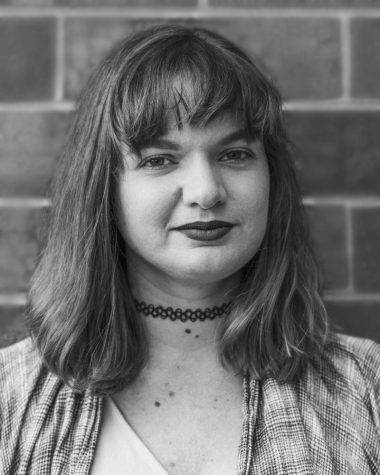Dark Commentary in Enlightening ‘Blindspotting’
A scene from “Blindspotting,” starring Daveed Diggs as Collin and Rafael Casal as Miles.
March 19, 2018
One could easily pigeonhole “Blindspotting” as a “Hamilton” successor, integrating rap and humor in the way that Lin-Manuel Miranda perfected in the musical. Daveed Diggs, who played both Marquis de Lafayette and Thomas Jefferson in the original “Hamilton” cast, carried this forward to his own project, “Blindspotting.”
With its dark commentary on systematic racial privilege and police brutality brought to life by inredibly modern camerawork, “Blindspotting” has made audience members draw parallels to Jordan Peele’s hit, “Get Out.” Despite many of the qualities that made “Get Out” so incisive and divisive, limiting “Blindspotting” to outside comparisons detracts from its excellence.
The new film from Diggs screened this past week at the South by Southwest Film Festival in Austin. “Blindspotting” grapples with friendship and the intersection of race and class, set against the rapidly gentrifying Bay Area.
Diggs plays Collin, a man who is three days away from completing a year-long probationary sentence after being jailed for aggravated assault. The story of the assault is revealed piecemeal, at one point narrated with painful detail and gut-busting humor by Utkarsh Ambudkar (“Pitch Perfect,” “White Famous”). Facing imminent freedom and trying to figure out what it means to live life as a convicted felon, Collin’s story is punctuated with rap from both himself and his lifelong best friend Miles. Their friendship is the stuff of legends.
But Miles, a white man born and raised in Oakland, has a few cards in his deck that just aren’t available to Collin. Miles was involved in the same fight that jailed Collin but was not arrested. Miles’ son, born to him and his black mother, is taught to raise his hands and cry “don’t shoot!” at the spry age of four. The complexity of a poor white man constantly being mistaken for a culture vulture among the new residents who slug green juice while they work at Pandora, being friends with a black convicted felon, boils to a fever pitch. Laughter quickly turns to shock.
Diggs wrote the film with fellow writer, producer, actor and friend Rafael Casal years before “Hamilton” had its first rehearsal. And although “Blindspotting” makes excellent use of rap verses that are seamlessly woven into the dialogue and plot of the film, it is by no means a musical. As it happens, rap is a central tenent of the culture of Oakland, California where the movie is set and where Diggs and Casal grew up. Rap is also a genre that has long been used as a device to merge lyricism, history and social conflict into a tradition and a culture of its own.
The history and social conflict that “Blindspotting” digs into is moreover not a “Get Out” copycat, commendable as it would be to try to follow up such a carefully crafted masterpiece. No, “Blindspotting” is a stand-alone work of art, wielding empathy, humor and the complexity of black experience to pick apart the mess of racism and systemic hatred. It deserves to be in the same class of film as “Get Out” due to its excellence, not merely its content.
Everything, from the gorgeous coloring of the set and lights that let Oakland shine vibrantly to the casual spitting of verses that should win Grammys to the acting by Diggs and Casal that could outshine nearly every other film on the market, makes “Blindspotting” a must-see. Its true star – the writing from Diggs and Casal – makes the dialogue so cutting and the feelings so overwhelming. The film makes you think, makes you cry, makes you empathize.
If you want to explore discussions of race in film, let “Blindspotting” start your conversation.
A version of this article appeared in the Monday, March 19 print edition. Email Hailey Nuthals at [email protected].

























































































































































